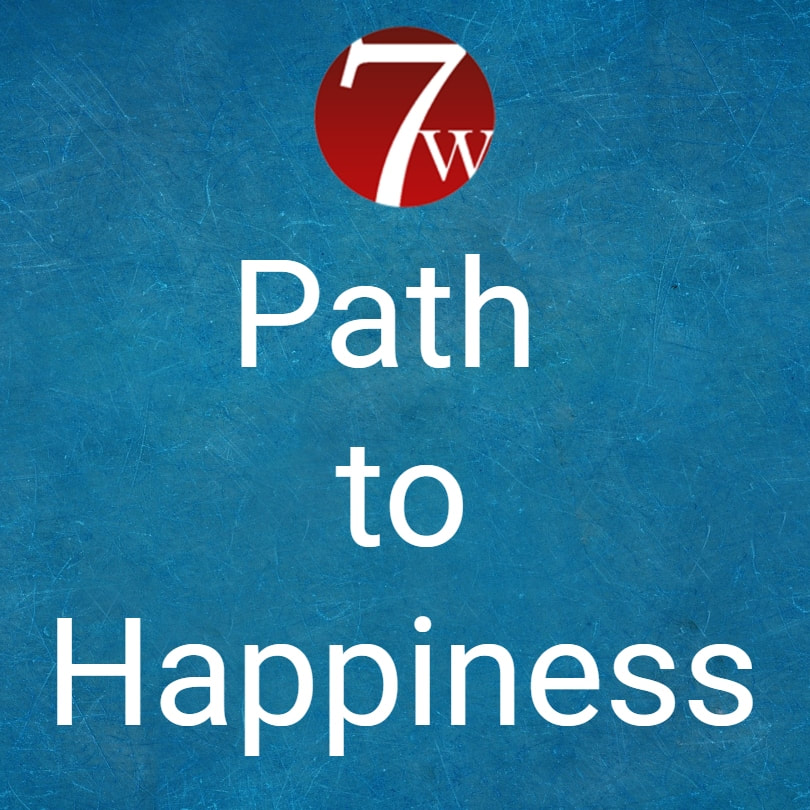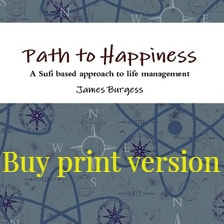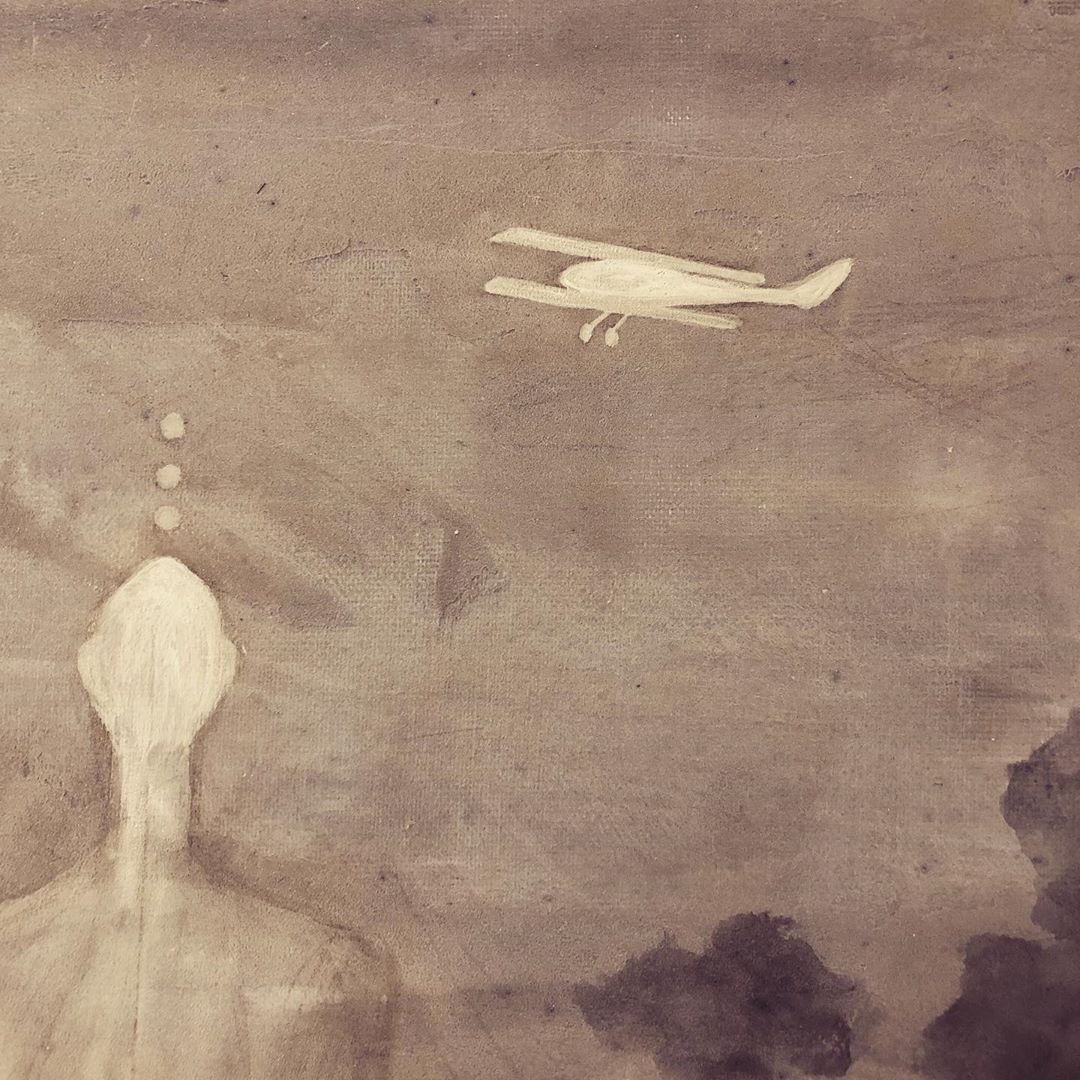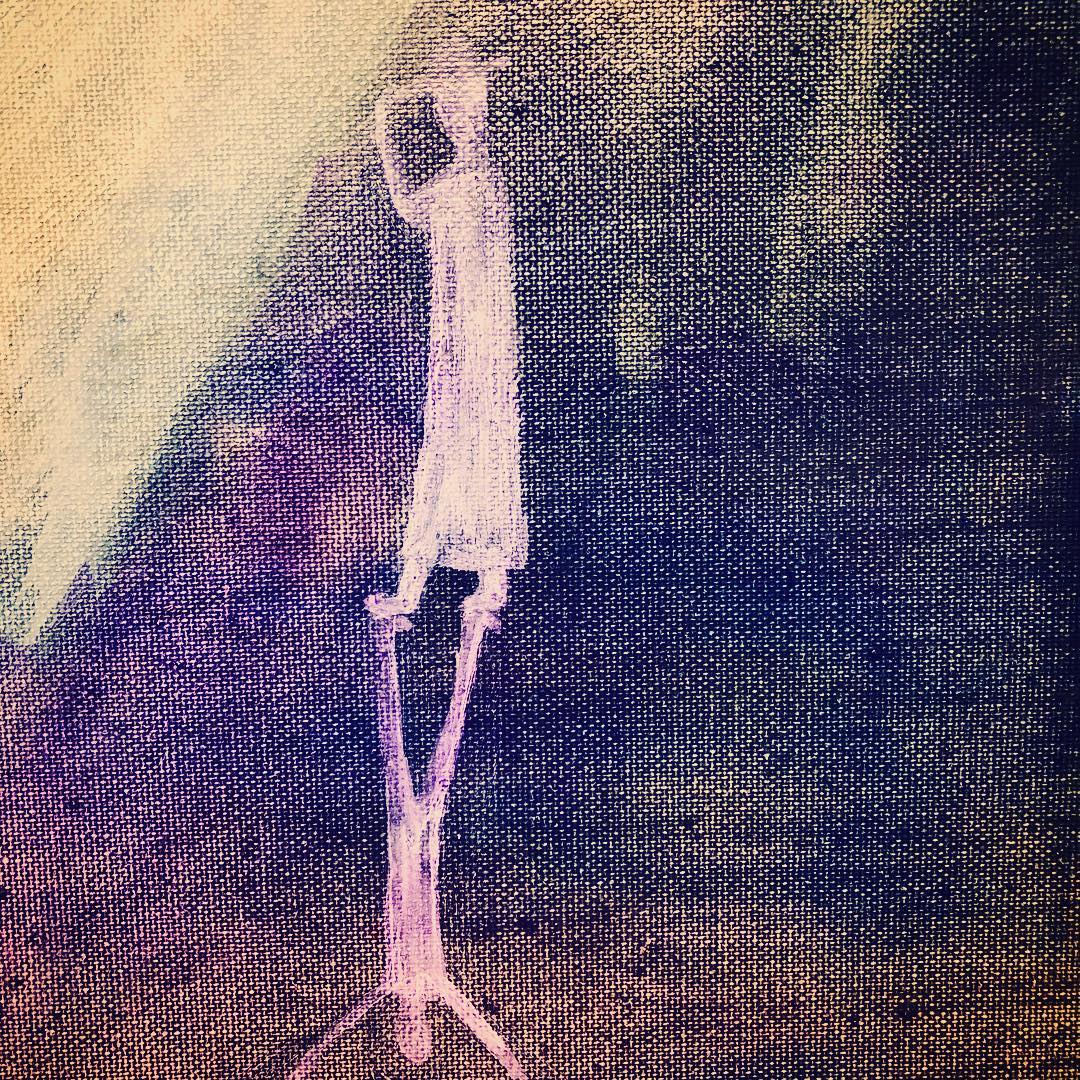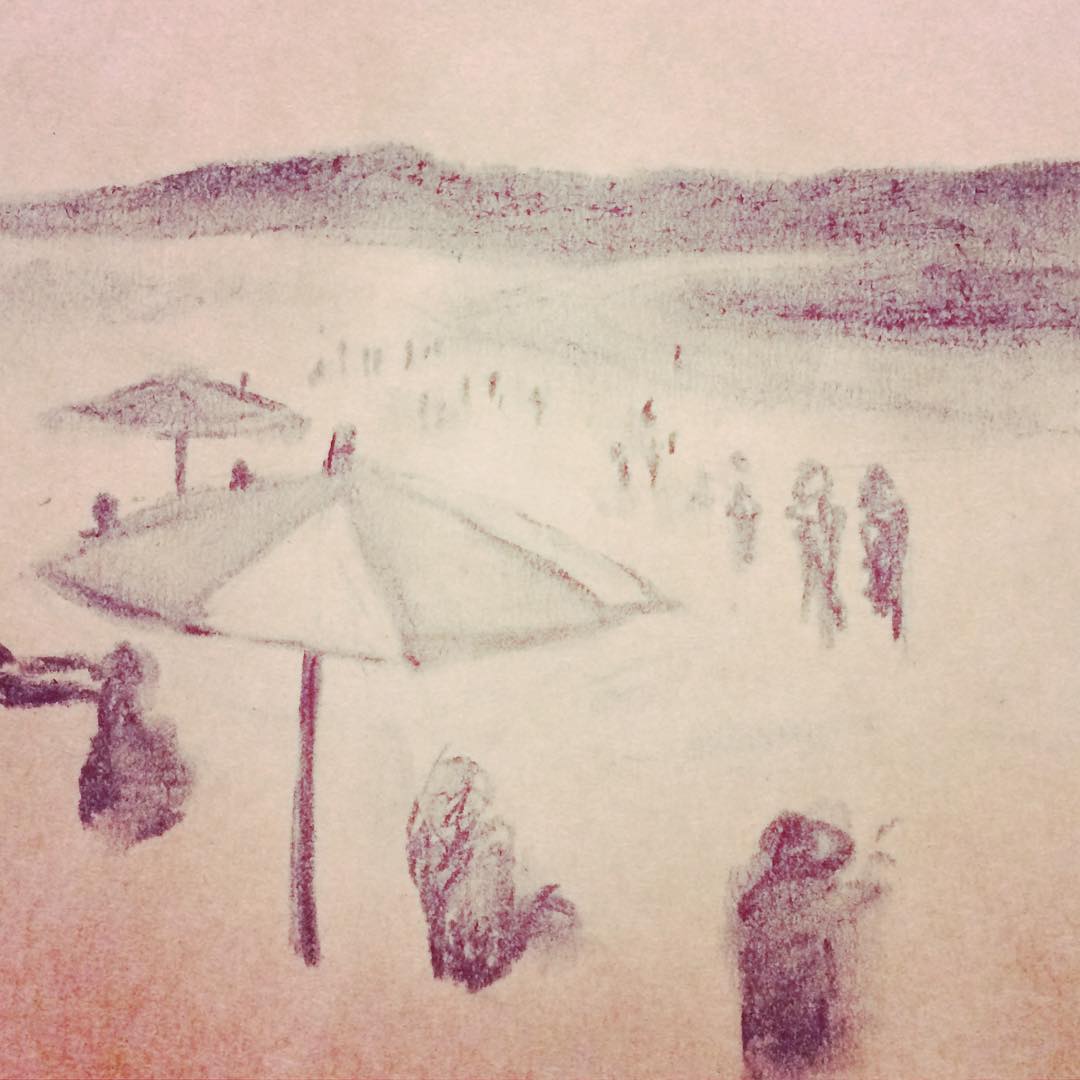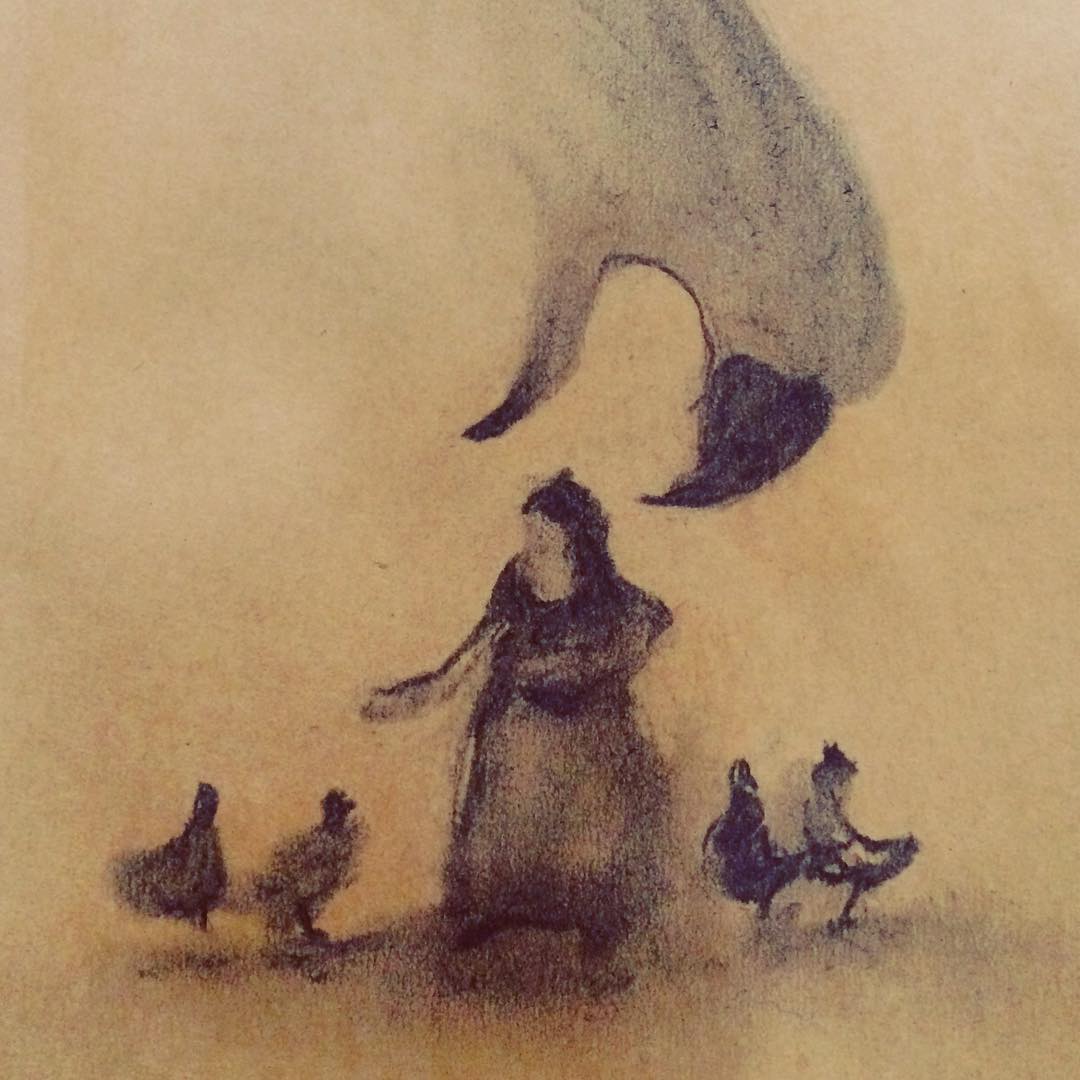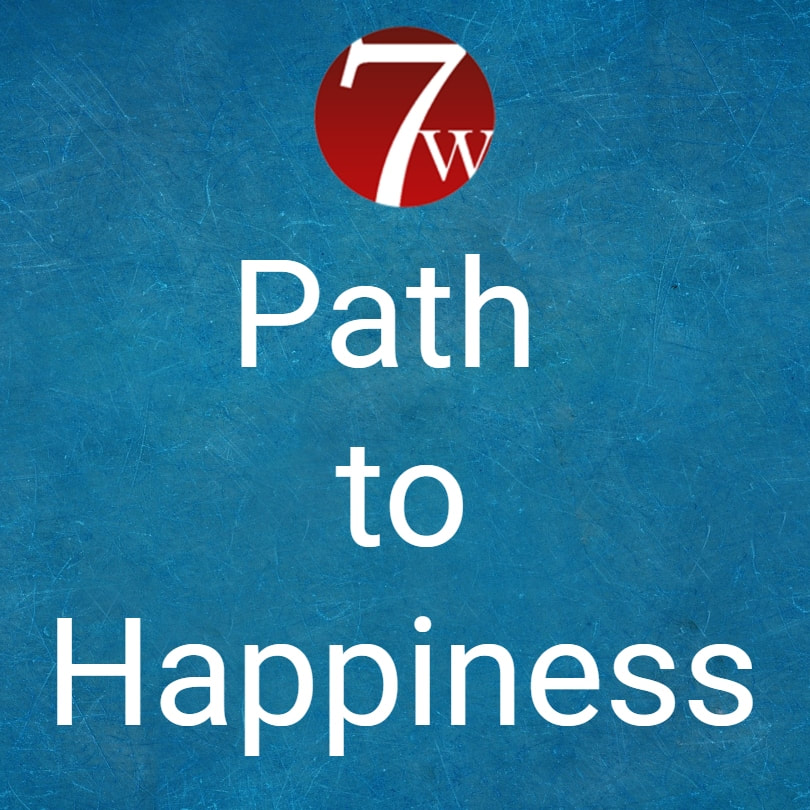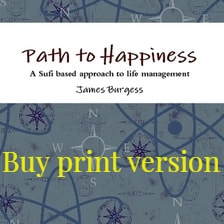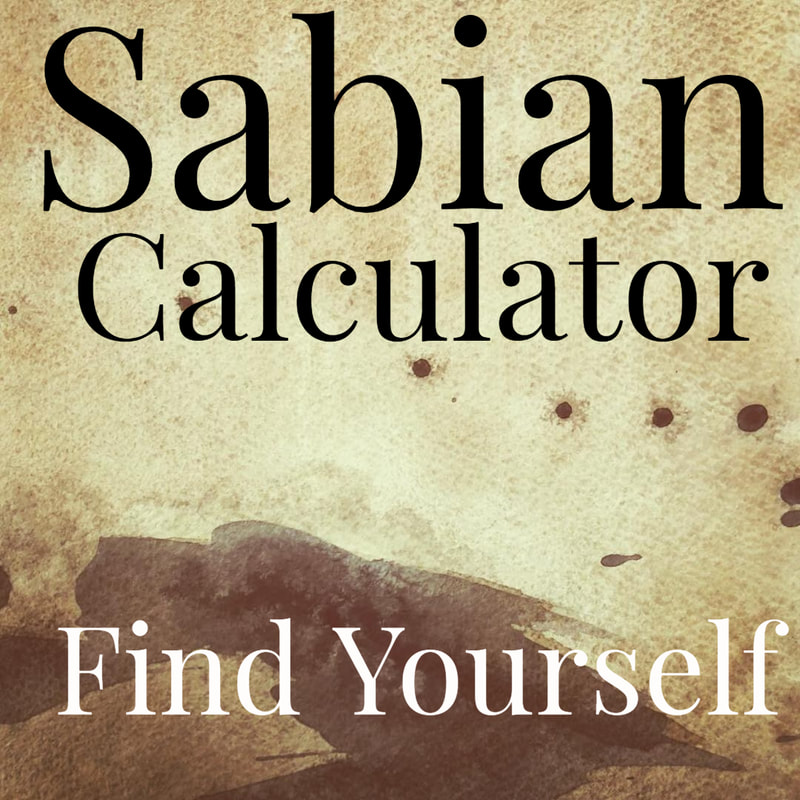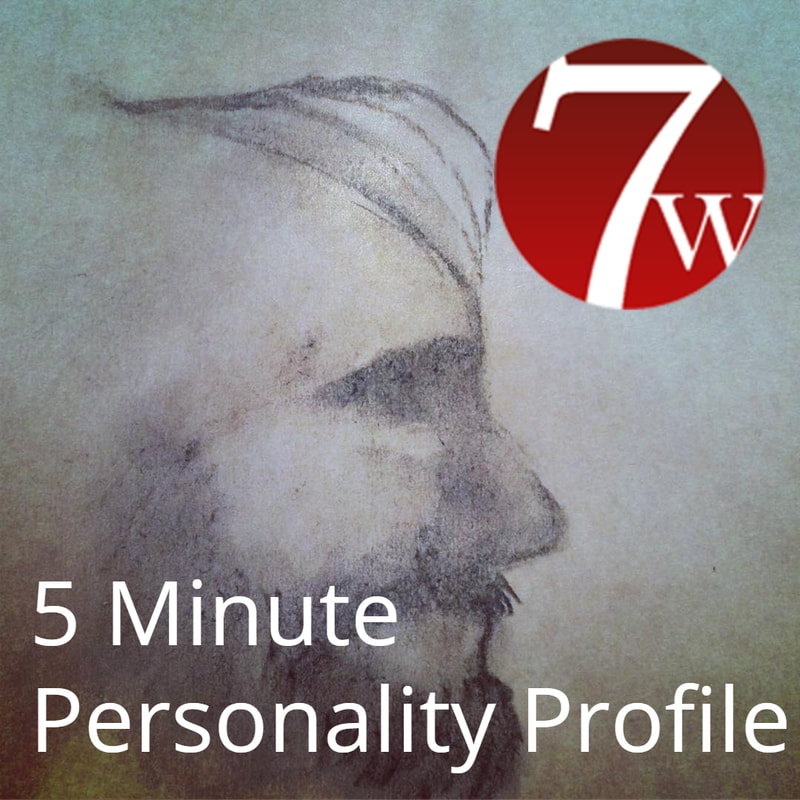Path to Happiness
ATTENTIONUsually the element of Air is considered as very characteristic of the processes of mind, and indeed we notice that our thoughts and consequential emotions scatter readily as pressures shift. We cannot control easily what we think and feel since the mind is so skittishly responsive to external phenomena, and also internal releases of hormones. But unless we do we will blow about as a candle in the wind, or else become rigid and habitual.
That which controls the mind is attention; attention is the focusing of mind. When we concentrate attention we can channel our thoughts, curiosity, imagination and feelings upon a specific point of interest with a particular attitude. It is a great achievement to master attention completely, probably almost never accomplished by anyone other than yogis, fakirs and such types. Yet we can at least improve ours by two classes of exercise. One is inward-looking in the form of meditation, and the others outward-looking, as the concentration upon a task or a fascinating experience. |
We Need to FocusThe need for us to focus our attention arises whenever we have a question to resolve or a task to accomplish. The threat of harm is often helpful as indeed we observe when people learn to drive. Youngsters who previously lacked any significant capacity for getting to grips with life become highly present and capable of ‘multitasking under stress’, a phrase which describes motoring rather well. The phrase also describes most of daily life for many people. If we cannot concentrate then we cannot find a useful position in the world and the penalties are piled on until eventually we are forced to learn how. We must somehow win food and shelter, and this is not often possible without giving these matters our serious, concentrated attention.
Another condition exists which can only be properly dealt with by learning how to control attention. When, through ill-discipline, the mind is allowed freedom to wander without limits, it can be very disturbing. At the very least this will lead to dreaminess and confusion, and could be even very uncomfortable when this is allowed to become extremely neurotic. Fear-based thoughts can quite quickly dominate the mind in the form of anxiety, pessimism and even paranoia. The failure to achieve, and chronic uncertainty about things generally, are indicators of poor attention. |
Perception and InterpretationTwo aspects of attention are evident. Bringing an amorphous congregation of sensory data together is one requirement – in other words pulling outer sensory data towards a centre for perception and interpretation. This information registers through eyes and ears of course, and yet there are many more sources than five. What is called ‘gut feeling’ is just one example of how the body responds to data. A good teacher can calibrate their awareness of how well their message is being understood by noticing the stress upon their own voice and its corresponding tone. A ‘lucky’ poker player has another strategy; we each have our own ways.
|
Being in the ZoneTo integrate this mass of input data into a laser sharp point of optimal influence requires that we learn how to find the pineal gland. This is a point at the centre of the head and corresponds to what esotericists call the third eye. It takes training to master the ability to locate it, but then what doesn’t? Meditation can lead to this skill. For those reluctant to learn meditation, sport is an excellent choice; so too is playing a musical instrument, especially with others. It is frequently referred to as ‘being in the zone’.
|
Dissolving the QuestionWhen we align ourselves completely with this point, then an extraordinary perceptual capacity is offered; we can know what previously we did not. Questions dissolve. Notice the difference between ‘questions dissolve’ and ‘questions are answered’. The true resolution of a quest is for its answer to become irrelevant. Seekers are attached to finding – and yet a higher state is that of impartial observation. In this case the open third eye is employed as an agency through which to experience awe rather than facilitate the power of understanding and manifestation.
As children we are made to develop control of concentration. Society supports the latter yet some consider such force harmful to the child’s wellbeing and suggest that play is better than work to achieve the required result. Putting aside the question of age though, it is clear that both approaches have their advantages. In some cases the mind will effortlessly learn to hold itself unblinkingly upon the target of its fascination, and in other cases become obedient to a powerfully stubborn force of will. |
Control the Mind, Control the LifeTwo examples illustrate the two outcomes. In one, a person’s ability to read the nuances of expression in another’s face can reach a near superhuman degree of perceptual acuity between lovers at play. In another, a tired driver can bully their mind to keep awake even when the body absolutely insists on closing the eyes to rest. We see that both joyful fascination and risk-of-death seriousness are effective tools to promote excellence of concentration.
It is well known that in Zen training the master whacks the student very courteously with a stick if they allow their attention to wander. This is not punishment; this is the employment of the body’s reluctance to experience pain as a device to help school the student’s mind towards exemplary control of attention, if not through awe then through discipline. The carrot-and-stick approach. |
Training Ourselves to Think RightMost people are enslaved by mind-control techniques such as political propaganda, marketing, peer-group pressure, parental dominance and so on. A mind that is out of our own control is certain to be manipulated by these forces. Only through control of our thoughts can we control our own circumstances and experiences. Further, it is unpleasant to live in confusion, because such a mental state gives rise to an equivalent state of emotionality – uncertain ever-changing emotions upon which no solid future can be constructed.
A trained attitude of attention generates a condition of searching curiosity and genuine concern. It’s like when we travel abroad – we enjoy a little bit of culture shock because it stimulates a deeper involvement in our here-and-now circumstances. We look below the surface of things to determine what they mean. |
Eyes on the PrizeIt is meaningful and helpful to think of life as a movie in which we are the script writer, the director, the protagonist, and even the antagonist too. We create the story with our attention – and the only real test of a good story is in its entertainment value. Part of the entertainment is invested in the feelings we have, and for some people the more poignant the better. Some like romance, some want a thrill, some yearn for spectacle and some actually enjoy violence and horror. Most of us like drama at least to some extent, without which there is no story. What we place our attention on determines our life scenarios – the movie we are choosing – and the quality of attention determines how we experience them. By training ourselves to control our attention we can make these determinations consciously and correct any errors of choice.
Attention has great power. Focusing upon any scenario will certainly change its outcome. This has application in counselling and therapy where the therapist can stimulate the resolution of an emotional problem simply by directing high quality listening attention. It also has impact upon the realisation of goals – attainment is inevitable for a person who holds a firm course. Keep your eyes on the prize! Also by noticing the echo of what we put out, we can much more easily adjust our direction and take others’ feedback into account. It is quite shocking sometimes to observe how few people understand that what happens to them is the echo of what earlier actions they took, and what expectation they hold. By observing cause and effect we reclaim authorship of our lives and authority over our situations. |
OPENNESS
Curiosity Did Not Kill the CatSentences that begin with the phrase ‘I wonder…’ suggest openness – for example: ‘I wonder how they do things in the next village’ or ‘I wonder what Mars is like’. Indeed ‘I wonder why…’ begins the pursuit of knowledge and ‘I wonder what happens if...’ begins scientific experimentation. We notice that in one context wonder is synonymous with awe, and this is helpful for us to identify the quintessence of the mental state that sustains openness; it is wide-eyed, open-mouthed, delight – joyful discovery through curiosity.
Curiosity is an aspect of mind that mirrors spirit itself; it is energetic, it is unbounded, it is innocent of purpose and it is free of dogma. We see it in babies from the first moment they open up to absorb impressions from the external environment. This shows that curiosity is fundamental in a healthy, growthful being. |
Growth is LifeWe are discussing something rather more important than that which underwrites tourism or further education. Every living thing is compelled towards expansion. In the animal and vegetable kingdoms, this is made clear in the physical dimension – old trees and old elephants’ tusks are bigger than young ones. For higher species growth continues on the level of consciousness – we get wiser rather than taller. Those who do not are subject to entropy and a diminishing claim on life. We see therefore that unless we expand awareness, we fall into the pit of entropy; we die off.
|
Considering Another Point of ViewIt is close-mindedness that gives rise to fear and its consequential violence. Wars become unavoidable. Unless, as a species, we develop more openness the outcome will be catastrophic. Inevitably this has implications personally. People ready to change their ways and opinions are more likely to survive and thrive; ever has it been so.
It is in conversation that openness becomes fully expressed. We can read books all we like and, having no sense of committed disagreement, feel that we have openness. Yet until the voice is engaged we really have no way of knowing quite how dogmatic we really are. Conversation awakens previously hidden or disguised narrow-mindedness. To express and develop openness it is necessary to consider the possibility that the other person’s point of view is valid – and occasionally perhaps even that ours is not the best. It is by no means necessary to win an argument, or indeed to lose one; it is enough to contemplate another perspective without bigotry. |
Keeping your Options OpenThe fluctuating nature of life causes us to make creative decisions about when to do ‘this’ and when to do ‘that’. Sometimes it is better to be open, sometimes it is better not to be. Having the ability to be open does not mean that we must exercise it at all times. For example, a person may define themselves as a ‘non-drinker’ and yet that self-limitation may occasionally be inappropriate and diminish their social influence. A more relaxed version of the same principle may allow for at least a glass of champagne at a wedding.
Being open implies having options – the option not to drink is as valid as the option to drink, and importantly vice-versa. It is a question of finding the correct dynamic balance that most authentically expresses our best strategy for long-term happiness. Neither permissiveness nor harsh self-discipline is likely to lead to the life-condition of joy. |
Travel Broadens the MindGenerally, openness sponsors expansion, and with it comes a wider social reach and more choice. This can bring a tendency to spread ourselves more thinly, so if we are already very busy, it may not always be appropriate. However, if we find life a little dull or uninspiring then it is probably because we need further input and engagement. Typically, to achieve this some effort is demanded, especially as we grow older because we can lose the appetite and urgency to explore. Yet there are many examples of people who make good use of the greater freedoms of age that come from releasing family and work responsibilities. Having a ‘bucket list’ can be very helpful – this is a self-determined challenge to do what we have always wanted to do but never found the time.
The most obvious activity that helps us to remain open is travel. When we meet new scenarios we are forced to awaken new aspects of ourselves, and very often this is accompanied by difficult emotions. In fact without some culture shock we are probably not really ‘travelling’ at all. Revisiting the same comfortable type of hotel on another beach in Spain is not likely to evoke an emotional response. It is only when we are pushed out of our comfort zone that growth occurs. Strange food, unexpected behaviours, imperfect information, things being out of our control, having none of our home comforts and so on – these trigger our feelings. When feelings are triggered – and only when – then an opening up is possibly taking place. It is surprising sometimes to learn that what we thought of as staunch opinions can quickly shift when we are abroad – even taboo questions of sexual practices, religious attitudes and political opinion. |
Expanding the Scope of ConversationOf course travel is not the only way through which we can open our horizons. Various media – social networking, cinema, literature and pub arguments all contribute something. Yet in the end openness is best expressed in the expanded qualities we bring to our connection with others through conversation; this most certainly means expanding our social circle to embrace new people with different ideas.
Even when we have a clear personal vision and appetite for advancement, should this degenerate into blind ambition then we lose a sense of healthy fluidity and adaptability. We are social beings and our wellbeing depends upon interactivity. Sharing our goals is a part of this, and in any case essential for success in any endeavour. Such sharing demands that we allow others to influence us with their viewpoints and requirements. This not only compensates for our own inadequacies and inexperience, it enhances the joyful aspect of life that arises within shared projects. |
Prejudice and ExpectationA lot is said to encourage physical fitness especially as the years pile on, yet what about mental fitness? It is sadly not at all unusual to meet a person whose beliefs, attitudes and understandings are permanently crystallised even before their 30th birthday. No significant development of consciousness occurs thereafter. This is death in life. Living things are not fixed; fixity is death. A fixity of mind must be addressed – through exercises and behaviours that demand liveliness in our mental approach. Openness heals – body, heart and soul – and an appetite for life is the deepest evidence of a psychologically healthy person. Inevitably the heart has some resonance with the mind, and so keeping the mind open tends to keep the loving heart softer and more radiant. With this approach, all situations, however demanding, can be rendered somewhat enjoyable, simply by having no prejudice or expectation.
|
EXCHANGE
Fair Exchange is No RobberyAs humanity arose out of its roots in the animal kingdom, so too did trade; the exchange of goods and services is particularly emblematic of our species. In the harsh reality of life, swapping surpluses makes good sense, whether your trading partner is friend or foe. Food, skills and knowledge are difficult to acquire and essential for survival and comfort. Bringing the light of consciousness to this phenomenon we notice that there is an inherent sense within us that ‘fair exchange’ is good and that, in the absence of this, sooner or later we will feel an offended sense of injustice and the need for recompense or at least termination of mutual dealings. The origins of this feeling lie in the sense that personal and tribal survival might well depend upon the fairness of any exchange. So even in the modern era, any continuing imbalances in exchange will likely trigger deeply unconscious survival-type emotions.
This observation can be extended to the fullest depth of human interaction, where what is exchanged is nothing more than attention. Though it might seem inconsequential and insubstantial, our feelings tell us of a hidden truth – that people really do not like to continue to give significantly more attention than they receive, and sooner or later will do something to rectify the imbalance. |
Honesty is the Best PolicyThe currencies of exchange are varied and usually interchangeable. Anything considered of value can be bartered, overtly or covertly. Food, sex, security, attention, services, prestige, position, permission…these are all used as currency. What is central and incontrovertible is that to maintain harmony both parties must feel a sense of mutuality of benefit, which over time tends towards a perceived fairness.
Whenever we are with another person, we are advised therefore to bring a high degree of consideration to find balance in the exchange that is occurring. If we are engaged in trading, then it is actually better for us to ensure that the trade is fair. We may feel titillation if we pull off a successful cheat. But really! Is such short-term pleasure and the stolen fruit worth the greater cost? Cheats are always going to be cheated themselves one day, because that is the world they choose to inhabit. Honest people recognise each other and gravitate together because the atmosphere of integrity is a palpable reality for them. Which world is preferable for you? |
Learning from our ExchangesEvery meaningful interaction has fair exchange as its foundation. If we betray the implied contract, then disruption is fast approaching. A husband who no longer shows concern for his wife’s feelings will eventually become disappointed with their love-making. A friend who talks and talks and talks should not expect to be tolerated indefinitely however patient and compassionate the listener may be. Both husband and windbag have stepped over the implied line of trust – that exchanges must be reasonably balanced.
On the other hand if we make a point of always being fair, we will be trusted more – not only by those who know us, but also by other honest people since they recognise our integrity. Being trusted, trustworthy and trusting are all interconnected conditions of being – and self-evidently a good and wholesome life reward for a constancy of fair exchange. A metaphor can be drawn that likens the conscious avoidance of unfair exchange in trade to the realm of exchange of ideas. There are some people who are convinced that their own wisdom is supreme, that they have nothing to learn. An open-minded person does not fall into this trap. What actually occurs when knowledge is communicated is reciprocal. In the more obvious example, everyone has some experiences and understandings that we do not, and from which we can benefit. To believe otherwise is just silly. However, there is also a more obscure aspect to consider – that a teacher needs a student in order even to be a teacher. True knowledge is seemingly passed from the more assertive to the more passive, yet it only arises because of the interaction itself – so how can we say which party has contributed more? The question is moot. The communication of ideas is an exchange of wisdom and can only exist when both sides of the equation are committed to and in harmony with the exchange. Teaching and learning arise together, each depending upon the other. Also, a teacher who is not open to further learning cannot inspire students but can only inform them. How could someone with a closed mind ever open the mind of another? It is our curiosity-driven appetite for further understanding that awakens the inspired attention of another. |
Shame on You!Consider a situation in which you have gained an unfair advantage – perhaps a shopkeeper has accidently undercharged you or given too much change. What do you do? The temptation is strong to hide the error, and if this seduces you it is likely to be followed by an unpleasant feeling of shame. It could be worse in the case that you have lost sight of your finer feelings and perhaps even celebrate a sense of having beaten down another person in a contest – behaviour similar to the crowing of a cock. It could be worse still and you decide to return the money with a holier-than-thou disposition. Moralising self-righteousness is very ugly, and so often it is one of the earlier indicators of imminent war.
|
Poverty ConsciousnessAnother approach is to understand that keeping the money is foolish; it is evidence of poverty-consciousness and leads to further poverty. By cheating, we may well end up with more money but it will never be enough. Poverty has little to do with how much money we have but is a feeling, the feeling of lack. Returning the money is an administrative question – we are helping to rectify a simple error, fully trusting that treating people fairly is the normal behaviour of a mature adult. Trusting in life is what makes life trustworthy.
The simplest and most commonplace type of exchange is in day-to-day ordinary conversations. Individually they may lack intensity, drama and even importance but as a collection, these events comprise the bulk of our social life, therefore our society and our experience of ourselves as part of the community. In so many ways these describe and define who we are and what is shaping our life circumstances. We do well to attend to them with great care. |
Friction Can be a Good ThingIt is likely that we try to fit in by understating any extreme positions we may hold. We will probably adopt the conventional attitudes and practices associated with our particular sub-set of society. Such an approach secures our place as part of it all. However, it is no less important to employ these conversations to establish the differences between us and the rest, taking a stance against those who would deny our set, and indeed our individuality.
The resultant friction must not be seen as a bad thing, and should not be avoided entirely. Diplomacy and other social skills can be found in order to minimise quarrels but the complete avoidance of such conflict is not in our best interests. Inevitably this would lead to an inauthentic self-expression and the eventual denial of who we really are. By its very nature, exchange includes friction because it is in essence a vigorous pushing and pulling without final resolution. Were it not so, society would lose its dynamism and we our personality and joy. |
RECOGNITION
The Ocean and the WaveTo represent this yearning let’s use the analogy of the ocean with its surface and its depth. Its deeper regions are dark and mysterious while its surface is windblown and ephemeral in nature. Each interconnects and informs the other and, despite having very difference appearances, they are not in fact separate at all, they are aspects of each other. The depth of the ocean is like the soul; the surface is like the mind. Our yearning for recognition expresses as the soul’s dark and mysterious memory, having a womb-like quality that echoes with our pre-birth knowledge of eternal realities.
As mind, the yearning is projected upon the surface phenomena and scenarios of life and creates what we consider to be reality. This is called Maya by Hindus and Ishq by Sufis. It is very helpful and perhaps even enlightening to comprehend that the illusion of life has its origins in our soul’s yearning to remember itself. If the soul were to remember itself, it would need to soften its boundaries of separation so that it could merge with the stuff of which it is made – pure spirit. |
The Salt PuppetA Sufi story tells of the Salt Puppet who has lived all of his life in the desert until he travels to the sea for the very first time. He dips his toe into the water to find out what it is and, as the toe dissolves, he learns that he must surrender part of himself in order to find out. His yearning for recognition is more powerful than his delight in self-love, so he walks into the ocean, simultaneously losing himself and rediscovering himself.
|
The Religious InstinctAs human beings we are partly motivated towards self-love and self-proclamation, and partly motivated by universal love and self-surrender. Demanding to be recognised for your achievements and your wonderfully charismatic personality is entirely valid – all power to you as you make your claims! Yet the equal and opposite yearning for recognition is soul-based and only ever fulfilled by surrendering to Unity. This can be achieved through a spiritual practice that awakens the transcendental state. Such practices do not need to be religious in the sense that they belong to a system of belief.
Yet neither can they be equated simply to our love of Nature or music. We can indeed access transcendental states through these and other things – but not just by liking them a lot. Perhaps theoretically we can arrive at the gate to transcendence alone, but in Sufism it is not thought either effective or wise to make the journey without guidance. The risk of self-deception is high, and there is also a quite realistic risk of possession too. We began this study with an emphatic foundation of strong boundaries for good reason. The light of self-discovery is juice to those agencies that feed on others. We must guard against them. |
The Golden RuleRecognition arises when we have mastered exchange. The exaltation of the principle of exchange is found within the state of ‘reflexive self-consciousness’. This phrase is also known as the ‘Golden Rule’, which explains that it’s a good idea to be aware of the impact we are having on others in all of our behaviours since we get back what we give out. If we want to receive abundance then we need to be generous; if we want to be loved then we must be loving. And to the point in hand – if we want to be recognised then we have to offer it first.
|
Know YourselfWithout exception, everyone we meet is a pale version of their potential selves – we are all capable of a greater depth and width of self-expression. This potential can be awaked by recognition. As we recognise potential in another, then they can feel the recognition as an energy-field and step into this field, which is created by the attention we are giving to it. In other words, we create a mental image of a world in which this person has realised further aspects of themselves – and they can then bring it into reality by making their claim. This claiming is also called assumption.
Parents have a profound responsibility to co-create a positive, encouraging story of their child’s capabilities. So too do priests and teachers for their followers. It is perhaps controversial to make the observation that history’s infamous criminals – from Genghis Khan to Stalin – don’t even scratch the surface of the evil perpetrated by religions and teachers that disallow self-expression on moral grounds, and point to the Great Denier in the sky as their Authority for their bullying psychological violence. They brainwash their flock into being afraid to live and even more afraid to die. One message is enough – by following the Golden Rule you will come to recognise yourself and then you will know Unity. All else is padding. |
